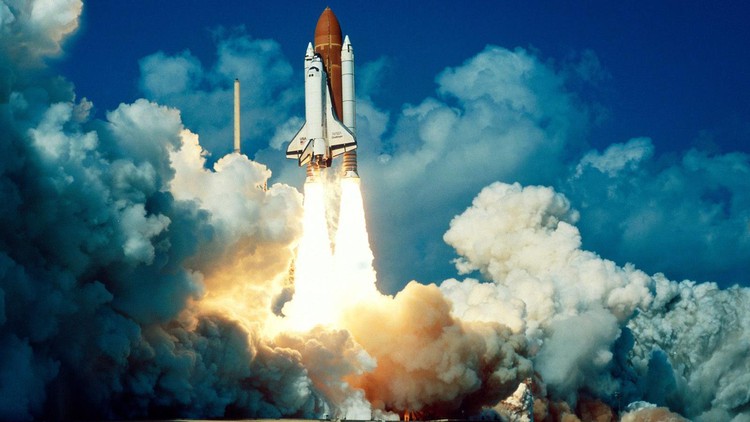
Have the knowledge of a rocket scientist and learn how to deal with complex equations critical to rocket propulsion!
What you will learn
Discover Rockets and Their Components
Derive and Understand The Rocket Thrust Equation
Full Understanding of Specific Impulse
Derive and Understand Tsiolkovsky’s Rocket Equation
Discover The Aerodynamic Forces on a Rocket
Thorough Thermodynamic Analysis
Understand The Meaning of An Ideal Rocket
Derive, Develop and Understand Complex Rocket Design Equations in A Simple Manner
Design a Rocket Engine For a Specific Orbit/Altitude
Derive and Understand Performance Key Parameters
Full Understanding Of How Liquid-Propellant Rocket Engines Work And Their Components
Discover The Different Engine Cooling Techniques
Heat Transfer Analysis
Full Understanding Of How Solid-Propellant Rocket Engines Work And Their Components
Discover The Different Electric Propulsion Systems, The Difference Between Them And How They Work
Description
HAVE THE KNOWLEDGE OF A ROCKET SCIENTIST!
First of all, if you’re looking for a course that contains basic knowledge about rocket science, just skip ahead because this course is NOT for you! This course is more mathematics oriented. Think of it as rocket propulsion university lectures compressed into 4.5 hours, that’s why high school/basic mathematics and physics are recommended.
You can always check my AP/College Physics course, your call!
PLEASE DO TAKE A LOOK AT THE VIDEOS PROVIDED FOR FREE BEFORE ENROLLING IN THIS COURSE!
I assure you, this is the only online course that focuses this much on rocket propulsion! Go ahead, do your research!
NO YOU WILL NOT BECOME A ROCKET SCIENTIST! You will however, understand the concepts behind rocket science and engineering and you will never say “IT’S NOT ROCKET SCIENCE!” again, because as it turns out, it’s not that hard.
This course contains 4.5 hours of content containing clear course videos and examples to help you better understand the concepts of rocket propulsion, and you will also find quiz questions at the end of each section so you can test your knowledge!
This course contains crystal clear explanation of rocket propulsion, how to deal with complex equations which are critical to rocket design and how to use these equations to design a rocket engine for a specific mission.
This course is made using Microsoft PowerPoint which I Provided in the form of a PDF so you can keep up while watching the course videos. You will find it included as a resource in the first course video, so you can easily download it.
YOU SHOULD KNOW THAT THIS COURSE DOES NOT CONTAIN ORBITAL MECHANICS (Kepler’s laws and all that)
PLEASE DO TAKE A LOOK AT THE COURSE CONTENT BEFORE ENROLLING IN THIS COURSE!
“We choose to go to the moon not because they are easy but because they are hard”. JFK
What students say about this course:
“I honestly never thought it would be this detailed! The way the instructor presents such complex concepts, so simple, so elegant. The examples and the quiz questions helped a lot!
Whether you’re a total beginner or a Ph.D. student, this course is PERFECT for you!
Thank you so much, really enjoyed it!”
Content